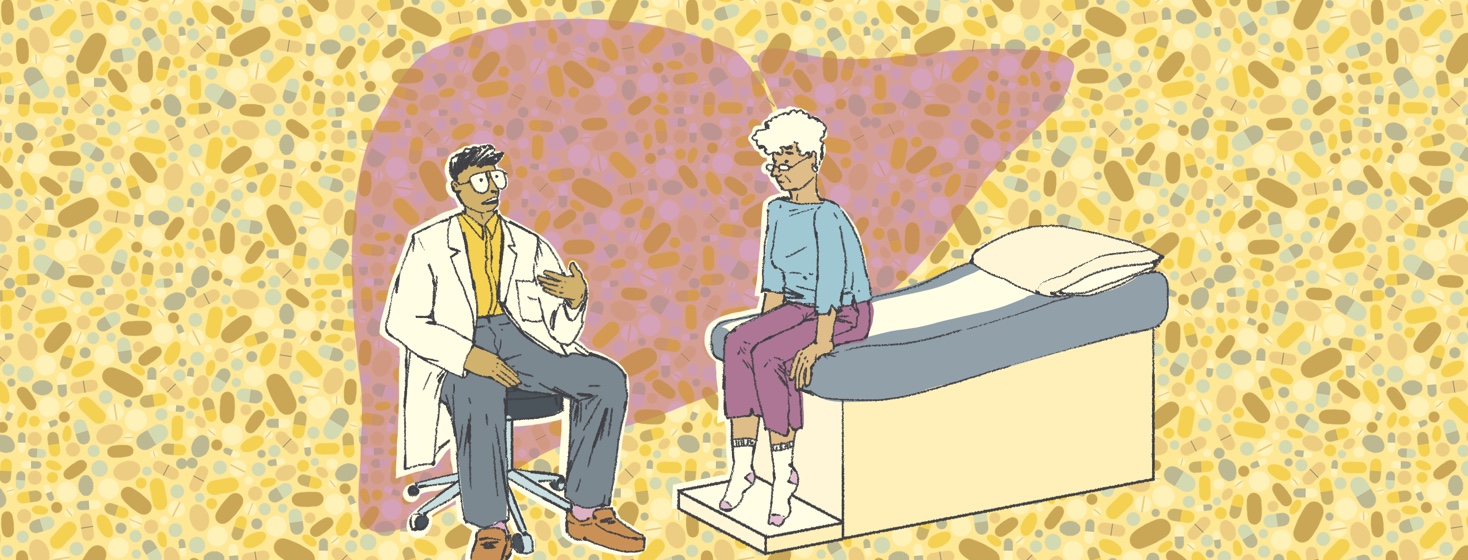Asking Your Doctor About Vitamins
Most of the time, people start taking vitamins and supplements without asking the doctor. Maybe it’s to prevent illness or disease. For example, if you’re not getting enough minerals and vitamins in food, supplements may be helpful. However, with inflammation from liver disease (such as with hep C), getting proper vitamins can be a mixed bag of tricks. With metabolic problems, distressed pancreas, overworked gallbladder, and other extrahepatic manifestations, your doctor is always the best person to ask before you begin to taking vitamins and supplements.
Before you go running in there, talking about claims you’ve read about on the internet, stop and think. Remember, your doctor knows a lot about liver disease. They are probably well acquainted with your blood lab panel. They can tell a lot about you just by looking at your liver enzymes or your viral load. Be prepared to have the conversation.
Tips for talking to your doctor
Here are my tips for talking to your doctor about vitamins and supplements:
- Make a list of which vitamins you feel are important.
- Get a picture of the bottle and the ingredients and print it, or save it on your phone.
- Tell the physician's assistant or nurse that you want to talk about vitamins and supplements.
- Prepare yourself for the doctor or medical provider’s answer.
- Ask questions.
- Be compliant with their orders.
What is compliance?
Compliance is a fancy word for "following the medical teams' orders". If you want to stay on good terms with the doctor, I've found that it’s best to listen, and follow orders. For me, it was the first step to getting better. If you disagree with your doctor, there are ways to handle it, but when it comes to vitamins, be prepared by knowing what is important.
I was very sick, and hospitalized with end stage liver failure. When I got home, I wanted to help my liver, so I followed my doctor’s orders exactly. That meant no vitamins for months. I could only take diuretics, beta-blockers, and drugs for low platelets. I found so many articles about how taking large doses of certain vitamins would help.
My doctor was always the first person I went to with any talk about vitamins and supplements people were discussing in forums. In the end, they always cautioned me, and I was always 100% compliant. It’s one of the reasons I was able to stay on the transplant list after getting liver cancer. I eventually got a new liver, and even now, protect it by being very careful about taking vitamins and supplements.
When you are ready to begin asking your doctor about vitamins, try and be open minded. They may know something you don’t. It’s not easy, but we have to trust that our doctor is going to do what is best for our health.
Ask for help
It’s intelligent to go in with your list and ask your doctor about vitamins. You may even want to ask about a vitamin lab test. Once you get rid of the virus, it’s okay to check back about how you are using supplements during your annual visit. Being hep C free is a huge boost for liver health. Your body will feel energetic, and get stronger soon.

Join the conversation